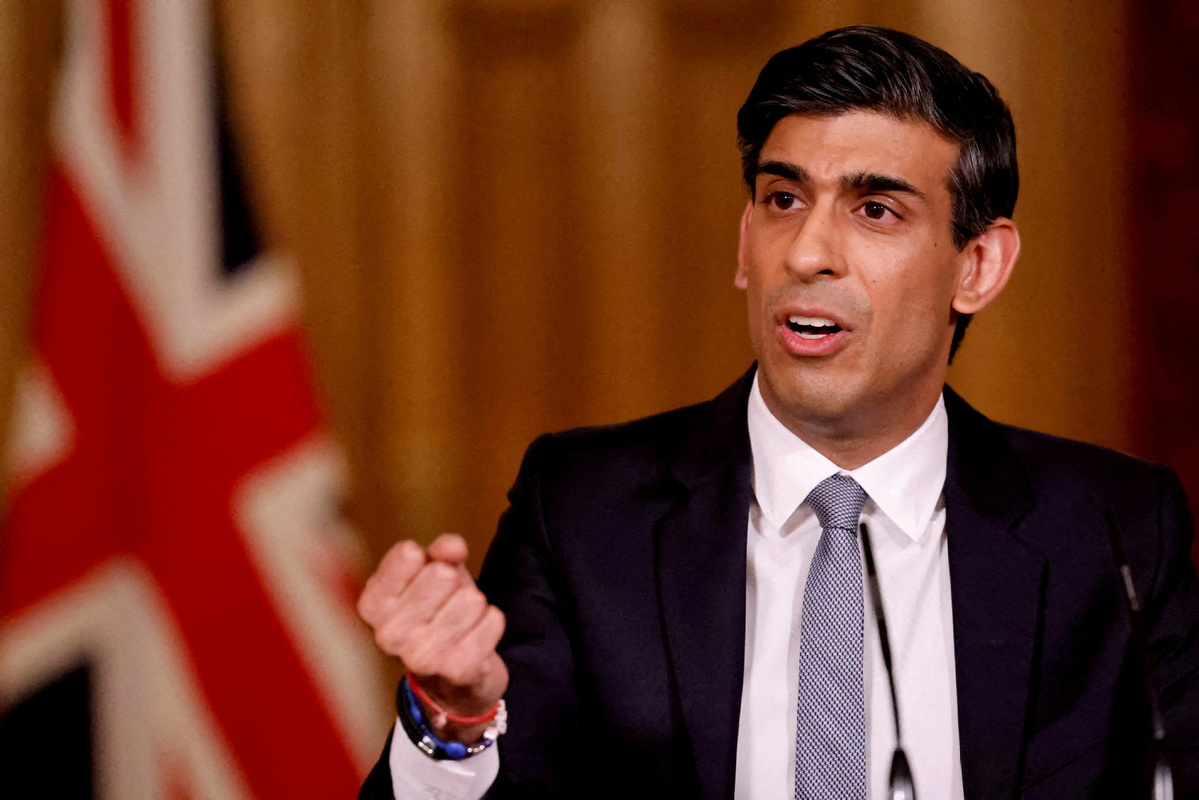UK finance minister 'still wants tax cuts'
By EARLE GALE in London | China Daily Global | Updated: 2022-02-25 09:17

The United Kingdom's finance minister, Chancellor of the Exchequer Rishi Sunak, defended his record on Thursday, after criticism of an impending tax hike.
In a speech at the University of London's Bayes Business School, Sunak insisted that the ruling Conservative Party remains the party of low taxation, despite his plan to hike National Insurance from April 1 so workers, employers, and the self-employed pay 1.25 pence more on every pound earned.
The tax rise will help fund the under-pressure National Health Service, and pay for improvements to the social care system.
But the move has been criticized by right-wing members of Sunak's party, who say it is more like something the opposition Labour Party would do.
Sunak insisted: "I am going to deliver a lower tax economy, but I am going to do so in a responsible way, and in a way that tackles our long-term challenges."
He said tax cuts will only become possible after "hard work, prioritization, and the willingness to make difficult and often unpopular arguments elsewhere" and cannot be made if the government has major spending plans.
Rachel Reeves, the Labour Party's shadow chancellor, said the Conservatives had become "the party of high tax".
"The chancellor may say he 'believes' in low taxes in his lecture, but the hard facts are that Sunak has hit households and business with 15 tax rises in two years… and he has raised the most tax … than any chancellor in the last 50 years," the BBC quoted her as saying.
Sunak's tax hike comes as UK households face a sharp rise in heating bills because of rises in the price of oil and natural gas, and as inflation, fueled by government spending on the fight against the novel coronavirus pandemic and supply-chain challenges, has devalued the money in people's pockets.
Sunak wants to summon up the spirit of former Conservative leader Margaret Thatcher, with "lower taxes, budgetary responsibility, and a greater emphasis on the private sector", the Financial Times newspaper said. But his record of raising taxes, the UK's largest-ever peacetime budget deficit, and Sunak's tolerance of Prime Minister Boris Johnson meddling with the economy will make it difficult for him to claim strong similarity with Thatcher, Britain's prime minister for the whole of the 1980s, the paper added.
Ironically, the United States-based International Monetary Fund added to Sunak's problems this week by saying in its annual review of the UK economy that, while growth should remain strong, "price pressures and risks" will mount.
The organization said Sunak should, therefore, address "demand-supply imbalances" by raising taxes on people "who have benefited most from the pandemic"-a so-called "windfall or wealth tax".
Such a thing would horrify the right-wing section of the Conservative Party that Sunak hoped his speech would calm.
























